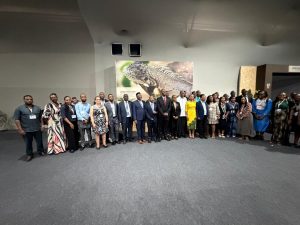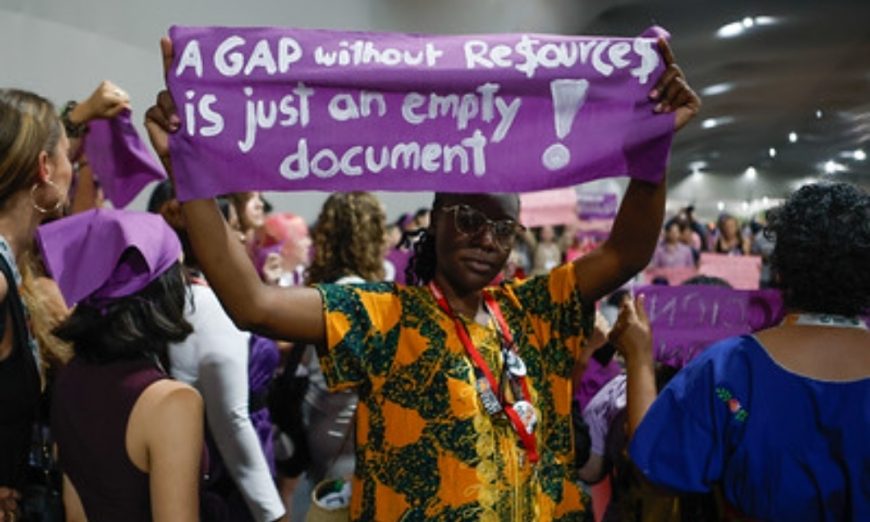Across Africa, millions of families start their day over smoky stoves. Women and children breathe invisible clouds of toxic fumes while forests shrink, black carbon rises into the atmosphere, and climate change tightens its grip.
Yet despite repeated promises at past global climate summits, clean cooking – modern stoves and fuels that are safe, efficient, and sustainable – remains out of reach for the majority. The world risks paying dearly unless COP30 in Belém, Brazil, turns words into action with accountability.
At this summit, the African Group of Negotiators (AGN), led by Tanzania, has a historic opportunity to ensure Africa’s priorities move from rhetoric to reality. Clean cooking must be recognized as a central pillar of climate adaptation, gender equity, and just transition, rather than a side conversation or symbolic pledge.
The Reality on the Ground
According to the World Health Organization (WHO), around 2.1 billion people worldwide still cook using open fires or inefficient stoves fuelled by wood, dung, or coal – with the majority in Africa.
And within Africa, the International Energy Agency (IEA) estimates that four out of five households lack access to clean cooking solutions.
It is estimated that indoor air pollution from traditional cooking causes nearly 815,000 premature deaths in Africa each year.
These are not abstract numbers. They describe homes where every meal carries the cost of health. They describe forests being cut, emissions rising, and women losing hours to fuel gathering instead of education, work, or leadership in their communities.
Financial barriers are severe. Modern stoves and fuels – LPG, ethanol, biogas, or electricity – cost $30–150, a prohibitive sum for families living on less than $4 per day, according to the World Bank report 2024. Distribution networks are weak, fuel supply is unreliable, and behavioral resistance persists, leading families to “fuel stack,” using both traditional and modern fuels.
Investment gaps are glaring. According to IEA 2024, “achieving universal clean cooking access in Africa requires US$37 billion by 2040, or more than US$2 billion annually,” yet in 2023, total investment reached only USD 675 million – far short of what’s needed.
Why Past Summits Have Had Mixed Impact
Global climate summits have raised awareness and created frameworks, but their impact on Africa has been limited. Financing commitments are often slow, conditional, or tied to debt, while adaptation needs remain underfunded.
Programs sometimes fail to reach communities, particularly in rural areas, or are poorly coordinated with national priorities.
Yet summits have helped African voices organize through the African Group of Negotiators (AGN), the African Union, and initiatives like the African Adaptation Initiative. Some funding windows for clean cooking, renewable energy, and climate resilience have emerged, though far below what the continent requires.

Tanzania and Africa’s Role at COP30
Under Tanzania’s leadership, the AGN can make COP30 different:
Anchor Clean Cooking in COP Decisions: Ensure that clean cooking is recognized as a climate, health, and gender priority, with measurable targets, budgets, and monitoring frameworks.
Secure Dedicated Climate Finance: Push for ring-fenced, results-based funding windows, ensuring that finance reaches communities, supports adoption, reduces emissions, and promotes gender inclusion.
Ensure Accountability: Demand annual reporting and independent verification of clean cooking progress at national and continental levels.
Empower Women and Local Enterprises: Support women-led stove manufacturing, fuel distribution, and entrepreneurship to make adoption sustainable and socially equitable.
Unite Africa’s Voice: Coordinate continentally to speak with one data-backed, solution-oriented voice, preventing commitments from being diluted into symbolic gestures.
The Urgent Question for COP30 Leaders
Africa cannot wait for another decade of promises. Clean cooking is central to climate adaptation, health, and economic development. It can reduce deaths, cut black carbon emissions, protect forests, and create green jobs – all at once.
So, here is the question that COP30 leaders must answer:
“For decades, Africa has been promised climate finance and support for practical solutions. This time, will COP30 deliver funding, measurable targets, and accountability mechanisms that enable the majority of Africans to finally cook clean, safely, and sustainably – or will it be another summit of words?”
Africa’s kitchens are frontlines in the climate fight. Under Tanzania’s leadership, the African negotiators have a chance to ensure these kitchens become hubs of transformation, saving lives, empowering women, protecting forests, and advancing the continent’s climate resilience.
The time for pledges is over. The time for action, backed by accountability, finance, and implementation, is now.










